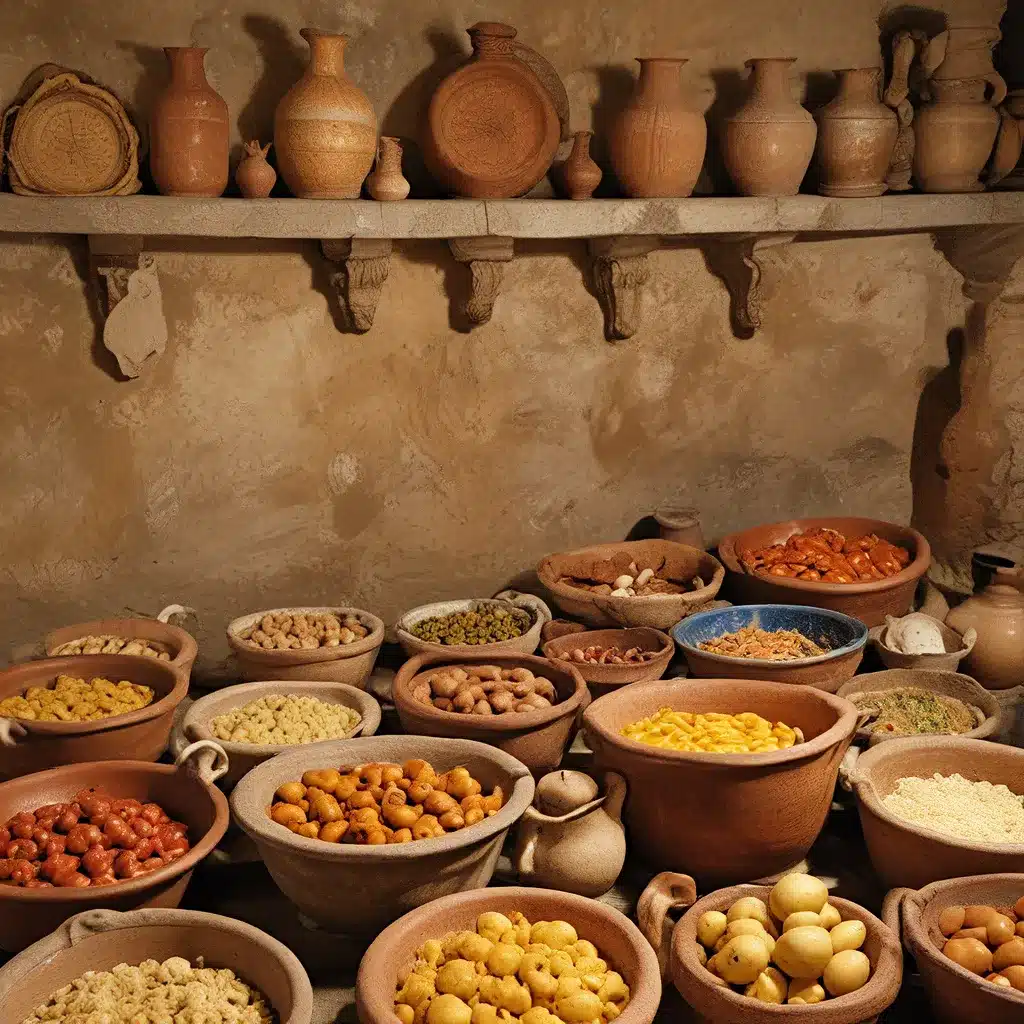
Uncovering Ancient Recipes: A Flavorful Journey Through History
In the ever-evolving world of cuisine, there is a growing fascination with the culinary traditions of the past. Researchers and food enthusiasts alike have been delving into the flavors and techniques of ancient civilizations, revealing a wealth of forgotten recipes and rediscovering the lost tastes of antiquity.
Through the study of historical texts, archaeology, and preserved food remains, experts have been able to reconstruct and recreate these ancient dishes, offering a unique opportunity to experience a taste of history. By combining modern knowledge with time-honored techniques, chefs and food lovers are unearthing the cultural significance of food in different societies and preserving these culinary traditions for future generations.
Forgotten Recipes: Connecting with Culinary Roots
Forgotten recipes hold a special allure, as they provide a glimpse into the past, allowing us to connect with our culinary roots and traditions. These unique flavor combinations and cooking methods, passed down through generations, often contain a piece of cultural heritage that is waiting to be rediscovered and celebrated.
Whether it’s an old recipe book tucked away in a dusty corner or a treasured dish from a grandparent’s kitchen, these forgotten culinary treasures offer a window into the past, revealing the diverse and fascinating food history of our ancestors. By uncovering and reviving these lost recipes, we not only honor the past but also create new memories and experiences for the present and future.
Reviving Ancient Cooking Techniques
In addition to rediscovering forgotten recipes, there is a growing movement to revive ancient cooking techniques in modern kitchens. These time-honored methods, passed down through generations, offer a unique way to connect with our culinary heritage and create delicious dishes that reflect the history and culture of different regions.
Fermentation, pickling, and smoking are just a few examples of the ancient techniques that are making a comeback, as chefs and food enthusiasts recognize the benefits of these traditional methods. Not only do they preserve food without the need for artificial additives, but they also enhance the flavors and nutritional value of the ingredients.
By embracing these ancient cooking techniques, we can reduce our environmental impact and promote sustainable food practices, all while honoring the rich history of our culinary traditions.
Exploring Historical Ingredients: A Taste of the Past
Spices, herbs, and grains have played a crucial role in human history for centuries, shaping the way we eat and influencing the flavors and aromas that we associate with different cultures and time periods.
Cinnamon, for example, was once considered more valuable than gold and was used in ancient Egypt for embalming purposes. Basil, on the other hand, was believed to have magical properties in ancient Greece and was used to ward off evil spirits, while today it is a staple in Italian cuisine.
Exploring the origins and histories of these historical ingredients can provide a deeper appreciation for the foods we eat and the cultures that produced them. By understanding the significance and evolution of these culinary elements, we can gain a richer perspective on the shared history of human civilizations and their culinary traditions.
Preserving and Celebrating Culinary Heritage
The process of rediscovering and reviving ancient culinary traditions is not just about recreating the flavors of the past; it’s also about preserving and celebrating our collective culinary heritage.
By uncovering forgotten recipes, experimenting with ancient cooking techniques, and exploring the histories of key ingredients, we can honor the culinary legacies of our ancestors and inspire future generations to continue this flavorful journey of discovery.
Whether it’s hosting a dinner party featuring nostalgic dishes or creating a digital cookbook to share these culinary treasures with the world, there are countless ways to engage with and celebrate the rich tapestry of ancient culinary traditions.
In the end, rediscovering the forgotten culinary delights of antiquity is not just about satisfying our taste buds; it’s about connecting with our past, preserving our cultural heritage, and creating new memories that will be passed down for generations to come.
So, the next time you step into the kitchen, why not explore the flavors of the past and unlock the secrets of ancient culinary masterpieces? Who knows what delicious discoveries await!


